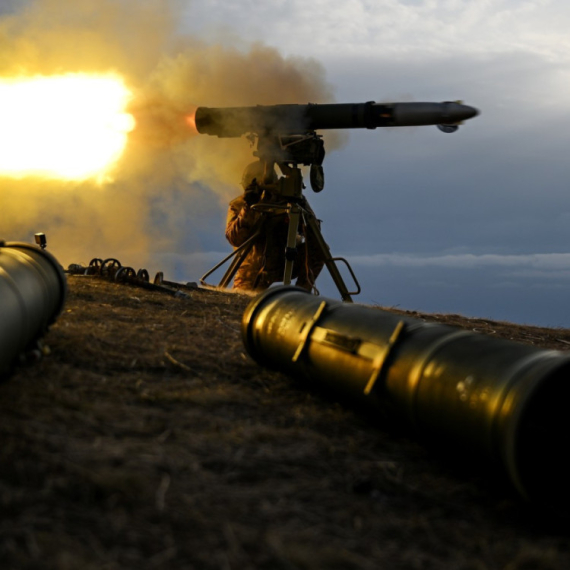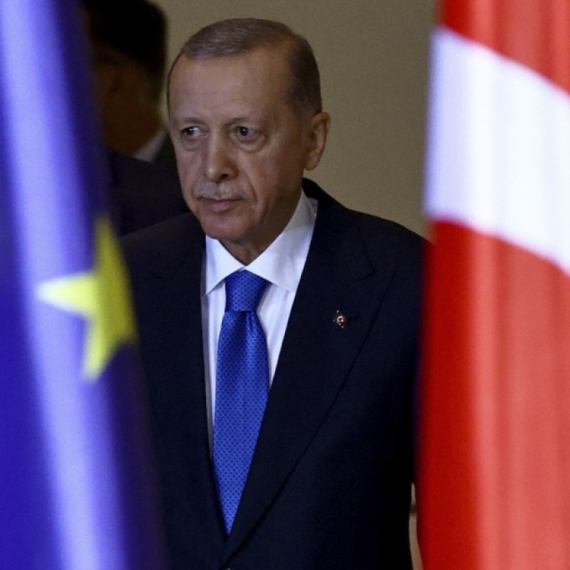First anniversary of SAA signing
On the first anniversary of the signing of the SAA, the government says that application of the agreement has led to stability and prosperity.
Wednesday, 29.04.2009.
16:19

On the first anniversary of the signing of the SAA, the government says that application of the agreement has led to stability and prosperity. According to a statement from the Government European Integration Office, although application of the Interim Trade Agreement and the Stabilization and Association Agreement is conditional on the approval of the EU Council of Ministers, the government began application of the trade part of the agreement on January 30, 2009. First anniversary of SAA signing “Application of the agreement is of great significance to Serbia, given that its fundamental economic element is the creation of a free trade zone between Serbia and the EU,” adds the statement. It is stated that the EU is traditionally Serbia’s most important economic partner, accounting for 56 percent of the country’s overall international trade. “If you bear in mind that the CEFTA countries, which also have a European perspective, are second in terms of export trade for Serbia, then it is easy to see that in future, over 80 percent of Serbian exports will be going to EU member-states,” the statement continues. The Government European Integration Office points out that the EU has yet to begin formal application of the agreement and that goods from Serbia enjoy preferential treatment on the European market. The EU has been applying a customs-free regime with Serbia since November 2000, so that Serbian businesses have not been paying any taxes or other levies on goods imported from the EU. “The extent of the savings are borne out by the fact that last year alone, our businesses would have spent an additional EUR 385mn had it not been for preferential treatment. That means that Serbian importers have made total savings of EUR 2bn in the last eight years,” says the office. It adds that thanks to these measures, together with overall economic reforms conducted in the country, exports from Serbia increased by 265 percent between 2001 and 2008. “The act of signing the agreement means that harmonizing national and European legislation has become a binding commitment. In that respect, the government has adopted 72 laws in the fourth quarter of last year and the first of this year, which, directly or indirectly, are linked to the European integration process,” the statement points out. The statement concludes by mentioning the recent presentation of the second quarterly report, which shows that 53 percent of planned European laws were adopted between January and March of this year. Last year's signing ceremony (FoNet, archive)
First anniversary of SAA signing
“Application of the agreement is of great significance to Serbia, given that its fundamental economic element is the creation of a free trade zone between Serbia and the EU,” adds the statement.It is stated that the EU is traditionally Serbia’s most important economic partner, accounting for 56 percent of the country’s overall international trade.
“If you bear in mind that the CEFTA countries, which also have a European perspective, are second in terms of export trade for Serbia, then it is easy to see that in future, over 80 percent of Serbian exports will be going to EU member-states,” the statement continues.
The Government European Integration Office points out that the EU has yet to begin formal application of the agreement and that goods from Serbia enjoy preferential treatment on the European market.
The EU has been applying a customs-free regime with Serbia since November 2000, so that Serbian businesses have not been paying any taxes or other levies on goods imported from the EU.
“The extent of the savings are borne out by the fact that last year alone, our businesses would have spent an additional EUR 385mn had it not been for preferential treatment. That means that Serbian importers have made total savings of EUR 2bn in the last eight years,” says the office.
It adds that thanks to these measures, together with overall economic reforms conducted in the country, exports from Serbia increased by 265 percent between 2001 and 2008.
“The act of signing the agreement means that harmonizing national and European legislation has become a binding commitment. In that respect, the government has adopted 72 laws in the fourth quarter of last year and the first of this year, which, directly or indirectly, are linked to the European integration process,” the statement points out.
The statement concludes by mentioning the recent presentation of the second quarterly report, which shows that 53 percent of planned European laws were adopted between January and March of this year.



























































Komentari 2
Pogledaj komentare